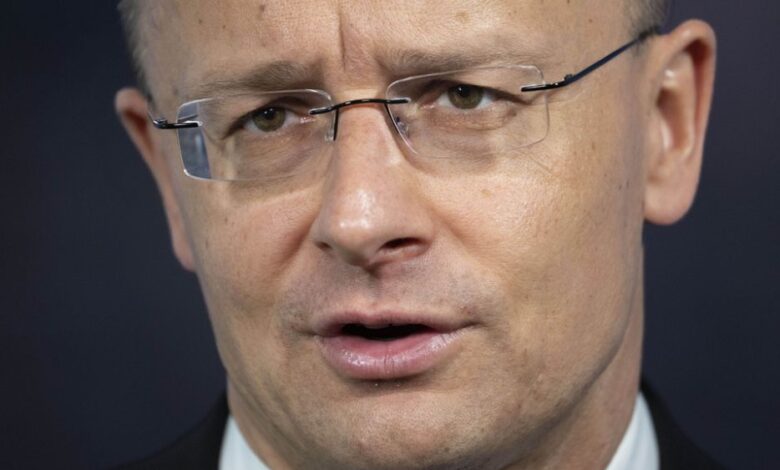Hungary sick of West’s criticism: Foreign Minister


Hungary is sick of western critique, the country’s foreign minister has said.
In an interview with the AP, Hungarian FM Peter Szijjarto said the West’s criticism of democratic and cultural issues in Hungary hampers cooperation, especially on NATO and Russia.
Budapest and Brussels have crossed swords on several issues in recent years, with the ruling far-right Fidesz party accused of taking an authoritarian turn, misusing EU funds and subverting the bloc’s policy towards the Ukraine war.
On Friday, Szijjarto said Hungary has not voted on whether to allow Finland and Sweden to join NATO because Hungarian lawmakers are fed up with their comments about its domestic affairs.
Hungarian MPs plan to vote in favour of Finland’s request to join the western military alliance next week, despite “serious concerns” about the “very disrespectful behaviour of the political elites” in Helsinki and Stockholm, he said.
“You know, when Finnish and Swedish politicians question the democratic nature of our political system, that’s really unacceptable.”
The foreign minister said it was hard to predict when Sweden’s membership would be approved.
Following the Russian invasion of Ukraine, the Nordic pair launched bids to join NATO. They have so far struggled to be accepted, with all 30 members having to first agree.
Only Hungary and Turkey have resisted letting them in.
The EU, which includes 21 NATO countries, has frozen billions in funds to Budapest, accusing populist Prime Minister Viktor Orban of eroding media freedom and LGBT+ rights.
Meanwhile, his government been condemned for allowing rampant corruption and co-opting state institutions.
In a resolution, MEPs said Hungary had become “a hybrid regime of electoral autocracy” under Orban, which was undermining the EU’s fundamental values.
Criticism like this made it hard for Hungary to support Finland and Sweden’s bids to join NATO, Szijjarto said.
Skeptics insist Hungary has simply been trying to win lucrative concessions.
Amid Moscow’s invasion of Ukraine, Szijjártó said his country’s advocacy of peace does not mean allowing Russia to keep territory it currently controls.
“You know, stopping the war and sitting around the table does not mean that you accept the status quo,” he said. “When the war stops and the peace talks start, it’s not necessary that the borders would be where the front lines are. We know this from our own history as well … Cease-fire has to come now.”
In March, Orban said his country would stay out of the Russia-Ukraine war and continue to veto sanctions that harm Budapest’s interests.
Hungary, bordering Ukraine, has taken a different approach towards the war than the EU.
It has blocked arms shipments to Ukraine from its territory, struck energy deals with Moscow, though Budapest and given humanitarian aid to Kyiv and accepted a large number of refugees.



